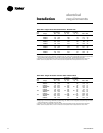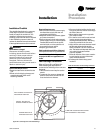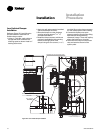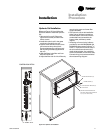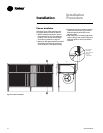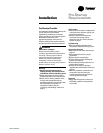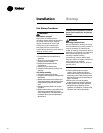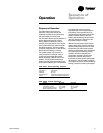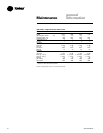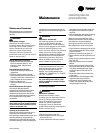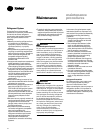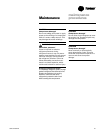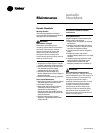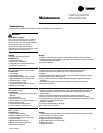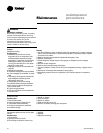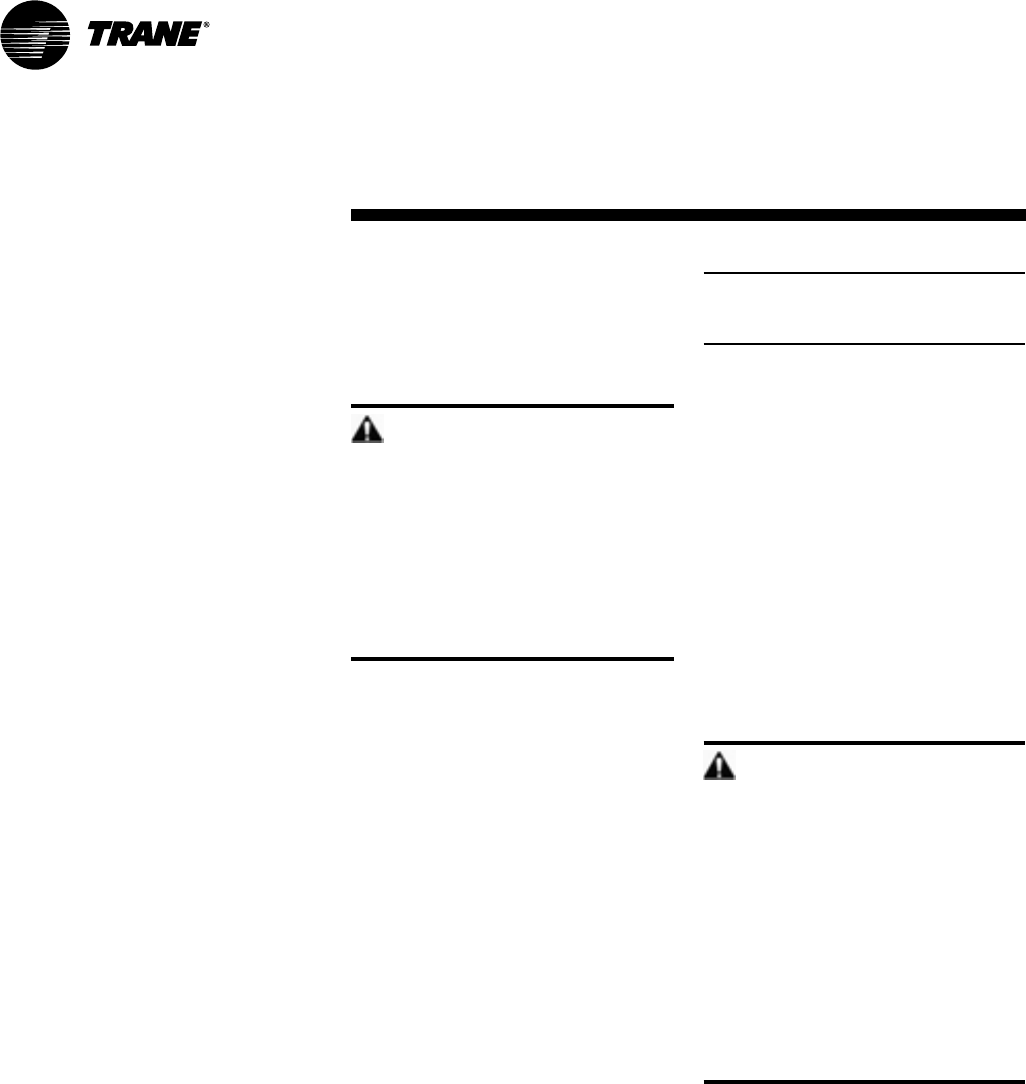
26 SXIH-SVX01B-EN
Maintenance
periodic
checklists
Periodic Checklists
Monthly Checklist
The following checklist provides the
recommended maintenance schedule to
keep the unit running efficiently.
WARNING
Hazardous voltage!
Disconnect all electric power,
including remote disconnects before
servicing. Follow proper lockout/
tagout procedures to ensure the
power can not be inadvertently
energized. Failure to disconnect
power before servicing could result in
death or serious injury.
1. Inspect unit air filters. Clean or replace
if airflow is blocked or if filters are dirty.
2. Inspect coils for icing. Icing on the coils
may indicate low airflow supply,
restricted airflow from dirty fins.
3. Check the fan belt condition and
tension. Adjust tension if belt is floppy or
squeals continually.
4. Check and record operating pressures.
Semi-Annual Maintenance
1. Verify the fan motor is properly aligned
and bolted tight to the motor frame.
2. Lubricate fan bearings.
3. With power disconnected, manually
rotate the fan wheel to check for
obstructions in the housing or
interference with fan blades. Remove
obstructions and debris. Center the fan
wheel if necessary.
4. Check the fan assembly sheave
alignment. Tighten set screws to their
proper torques.
Note: Perform this procedure monthly if
the unit is in a coastal or corrosive
environment.
Annual Maintenance
Check and tighten all set screws, bolts,
locking collars and sheaves.
1. Inspect, clean, and tighten all electrical
connections.
2. Visually inspect the entire unit casing
for chips or corrosion. Remove rust or
corrosion and repaint surfaces.
3. Visually check for leaks in refrigerant
piping.
4. Inspect fan, motor, and control
contacts. Replace badly worn or eroded
contacts.
5. Inspect the thermal expansion valve
sensing bulbs for cleanliness, good
contact with the suction line, and
adequate insulation from ambient air.
WARNING
Live electrical components!
During installation, testing, servicing
and troubleshooting of this product, it
may be necessary to work with live
electrical components. Have a
qualified licensed electrician or other
individual who has been properly
trained in handling live electrical
components perform these tasks.
Failure to follow all electrical safety
precautions when exposed to live
electrical components could result in
death or serious injury.



